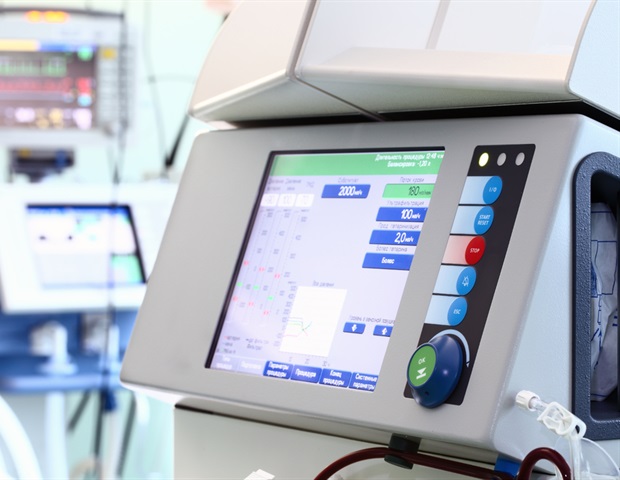
Amongst folks with dialysis-dependent kidney failure, a type of psychological remedy referred to as ache coping abilities coaching lowered how a lot ache acquired in the best way of their each day lives, often known as ache interference. The scientific trial, funded by the Nationwide Institutes of Well being (NIH), discovered that coaching folks on the way to handle ache lowered the extent to which ache affected their work and social actions, temper, and relationships. The ache coping abilities coaching, which was tailored for folks present process long-term dialysis, additionally improved different results of ache, together with the depth of ache, melancholy, nervousness, and high quality of life. Ache coping abilities coaching is an method extensively used for power ache, but it surely had not beforehand been examined for folks handled with dialysis.
“Only a few interventions have been proven to enhance the standard of life for folks with end-stage kidney illness being handled with dialysis,” stated Dr. Paul Kimmel, program director at NIH’s Nationwide Institute of Diabetes and Digestive and Kidney Ailments (NIDDK), which led the examine. “For instance, opioids, which have been a principal remedy for ache on this inhabitants, have uncomfortable side effects that may be extra pronounced within the presence of kidney failure, making ache administration difficult.”
Greater than 808,000 folks in america reside with end-stage kidney illness, and 68% of them obtain remedy with dialysis. Individuals with dialysis-dependent kidney illness usually expertise power ache but have restricted ache remedy choices. Moreover, sticking to ache remedy plans may be troublesome whereas present process dialysis. The examine analysis group, generally known as the Hemodialysis Opioid Prescription Effort (HOPE) consortium, thus aimed to develop a behavioral intervention that might lower the notion of ache, enhance high quality of life, and scale back opioid use amongst hemodialysis populations. This examine is the biggest randomized managed trial to point out {that a} nonpharmacologic ache intervention gives advantages to folks with end-stage kidney illness being handled with dialysis.
The multi-center trial enrolled 643 adults being handled with upkeep dialysis for end-stage kidney illness and experiencing power ache. About half of contributors have been assigned to the ache coping abilities coaching intervention, whereas the opposite half acquired normal scientific care with no trial-based intervention. The ache coping abilities coaching comprised 12 weeks of digital, one-on-one, coach-led classes to show coping abilities for power ache, improve self-efficacy (the idea in a single’s skill to realize targets), and scale back pain-related sleep difficulties, nervousness, and stress. The intervention included instruction, modeling of abilities, guided follow, and experiential coaching. The coach-led classes have been adopted by 12 weeks of automated interactive voice response classes to refresh the newly acquired abilities.
At 12 weeks, 51% of individuals within the ache coping abilities coaching group reported a discount in ache interference vs. 37% within the normal care group, and the profit continued all through the 24-week intervention interval. The distinction between the 2 teams diminished at week 36, 12 weeks after the intervention ended. Researchers imagine folks receiving ache coping abilities coaching might have continued reinforcement to see extra or long-term profit. The ache coping abilities coaching additionally improved pain-related outcomes of ache severity, melancholy, nervousness, high quality of life, and ache catastrophizing (a damaging psychological and emotional response to anticipated or precise ache that’s related to poor ache outcomes).
The examine outcomes point out that ache coping abilities coaching could also be an interesting different or complement to ache drugs. Though the impact of the ache coping abilities coaching on the general cohort was modest, its excessive acceptability, tolerability, and security and its noticed advantages to ache, nervousness, melancholy, and high quality of life help additional analysis on growing nonpharmacologic, non-invasive methods for managing ache in dialysis populations.
Future work will give attention to the way to lengthen the favorable results of ache coping abilities coaching and the way to broadly implement this intervention in scientific follow. Primarily based on the profitable outcomes of this examine, our hope is that this intervention may be made obtainable broadly to sufferers receiving dialysis.”
Dr. Laura M. Dember, lead writer, nephrologist and scientific investigator on the College of Pennsylvania Perelman Faculty of Medication, Philadelphia
The examine, the Hemodialysis Opioid Prescription Effort (HOPE) Consortium Trial to Cut back Ache and Opioid Use in Hemodialysis, was funded by the Serving to to Finish Dependancy Lengthy-term Initiative, or NIH HEAL Initiative, an NIH-wide effort that seeks to hurry scientific options to the overdose epidemic, together with opioid and stimulant use problems, and the disaster of power ache.
Serving to to Finish Dependancy Lengthy-term® and NIH HEAL Initiative® are registered logos of the Division of Well being and Human Companies.
Supply:
Journal reference:
Dember L, Hsu J, Mehrotra R, et al. Ache coping abilities coaching for sufferers receiving hemodialysis: The HOPE Consortium randomized scientific trial. JAMA Inside Medication. 2024; doi: 10.1001/jamainternmed.2024.7140

